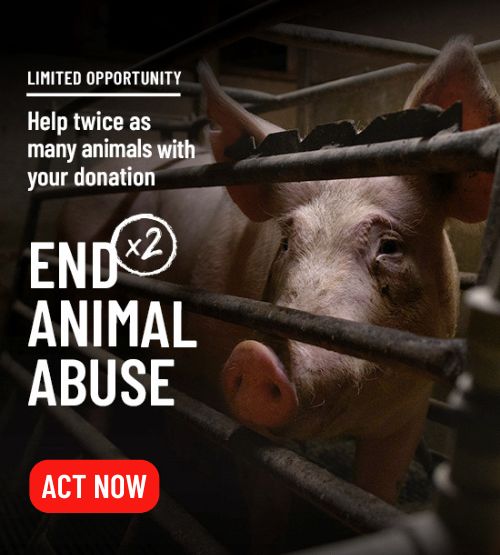
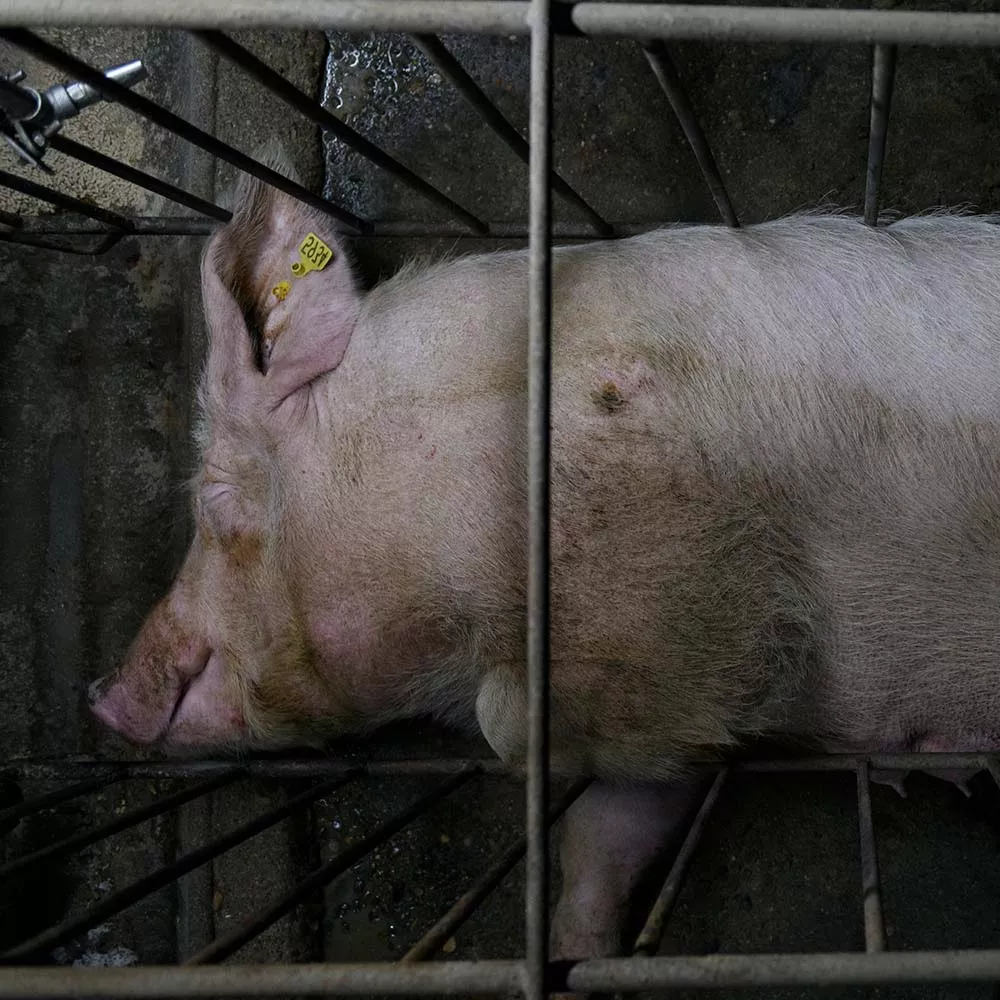
Fresh facade, cruel reality:
The hidden truth behind First Watch’s menu
Imagine never being able to turn around
From morning to night, summer to fall, this pregnant mother pig will spend her life in a cage so small she can’t even turn around.
Other restaurants, from The Cheesecake Factory to Outback Steakhouse, have stopped supporting this cruelty, but First Watch refuses. In fact, pigs aren’t mentioned at all in its public animal welfare policies.
While the use of gestation crates is condemned by animal welfare experts and already banned or restricted in 11 U.S. states, First Watch continues to allow this abusive practice.
Demand better from First Watch by emailing the company’s leadership now:
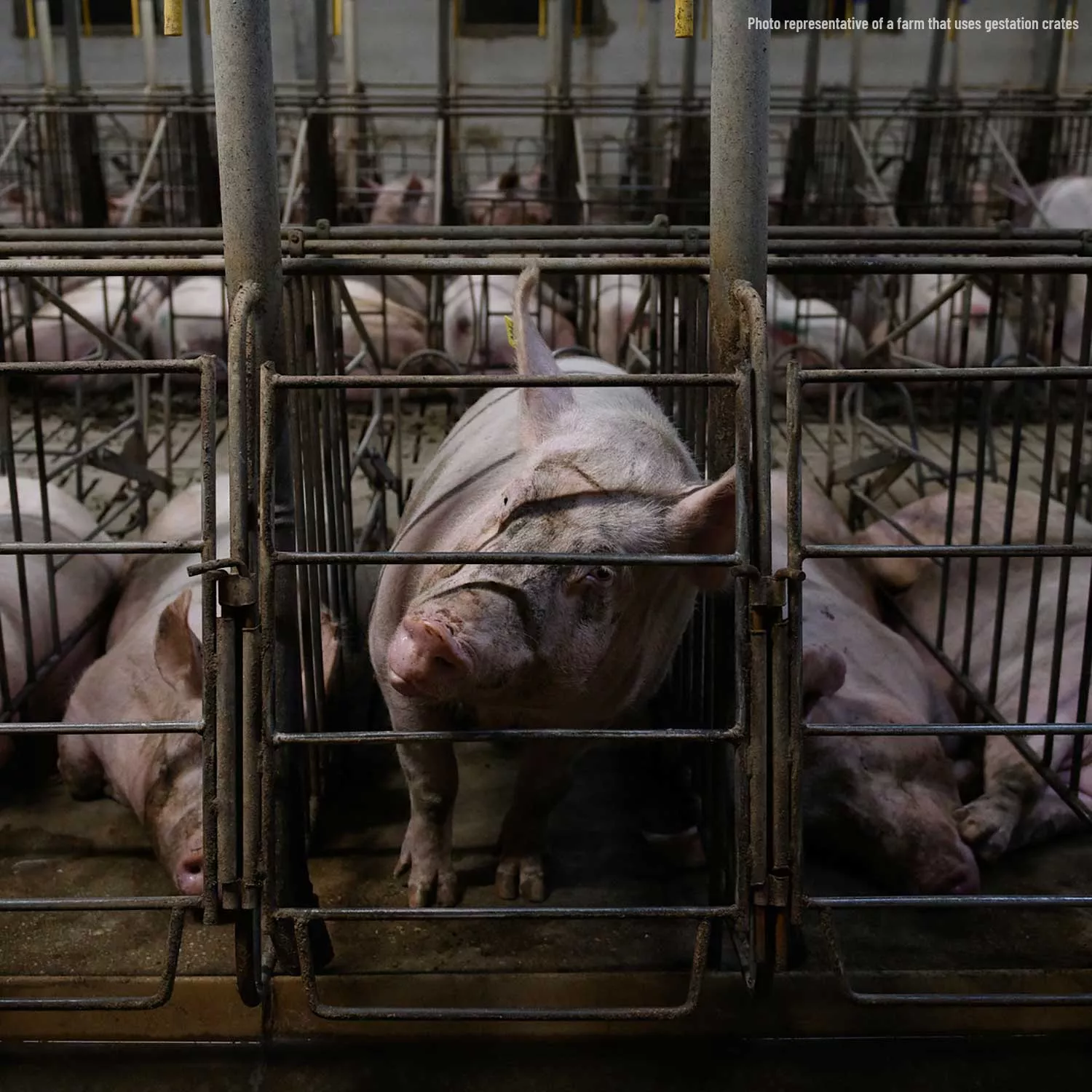
What is a gestation crate?
A gestation crate is a metal pen in which pregnant pigs are kept for part or all of their pregnancies. Shortly after a pig is impregnated, the pig is moved to a gestation crate.
These crates are only slightly larger than her body, measuring around 2 feet (1.6m) wide by 7 feet (2.1m) long. In these crates, a mother pig can take only a single step forward or backward and cannot fully extend her limbs.
The floor beneath her is slatted, allowing excrement and urine to fall into a pit below.
Experts agree: Gestation crates must go

Gestation crates for pigs are a real problem…Basically, you’re asking a sow to live in an airline seat…I think it’s something that needs to be phased out.
Temple Grandin
Associate Professor, Department of Animal Science, Colorado State University

…[T]he close confinement of sows in stalls or tethers is one of the most extreme examples of cruelty to an animal. It continues throughout much of life and is much worse than severely beating an animal or most laboratory experiments.
Donald M. Broom
Professor of Animal Welfare, University of Cambridge

Confinement of sows during pregnancy, especially in individual stalls or on tethers, can be cold, uncomfortable, and injurious, and imposes severe restrictions on natural behavior.
John Webster
Senior Research Fellow and Emeritus Professor of Animal Husbandry, University of Bristol, Creator of the Five Freedoms
Movement is restricted
Gestation crates are so small that a sow cannot turn around, which leads to decreased cardiovascular fitness. This restriction decreases both muscle strength and bone density, which worsens with each pregnancy. Group-housed pigs, who are slightly less restricted, show fewer abnormalities in their bone and muscle development.
Crated pigs also experience more confinement-related injuries, such as pressure sores, ulcers, and abrasions. They have higher rates of calluses and limb injuries.
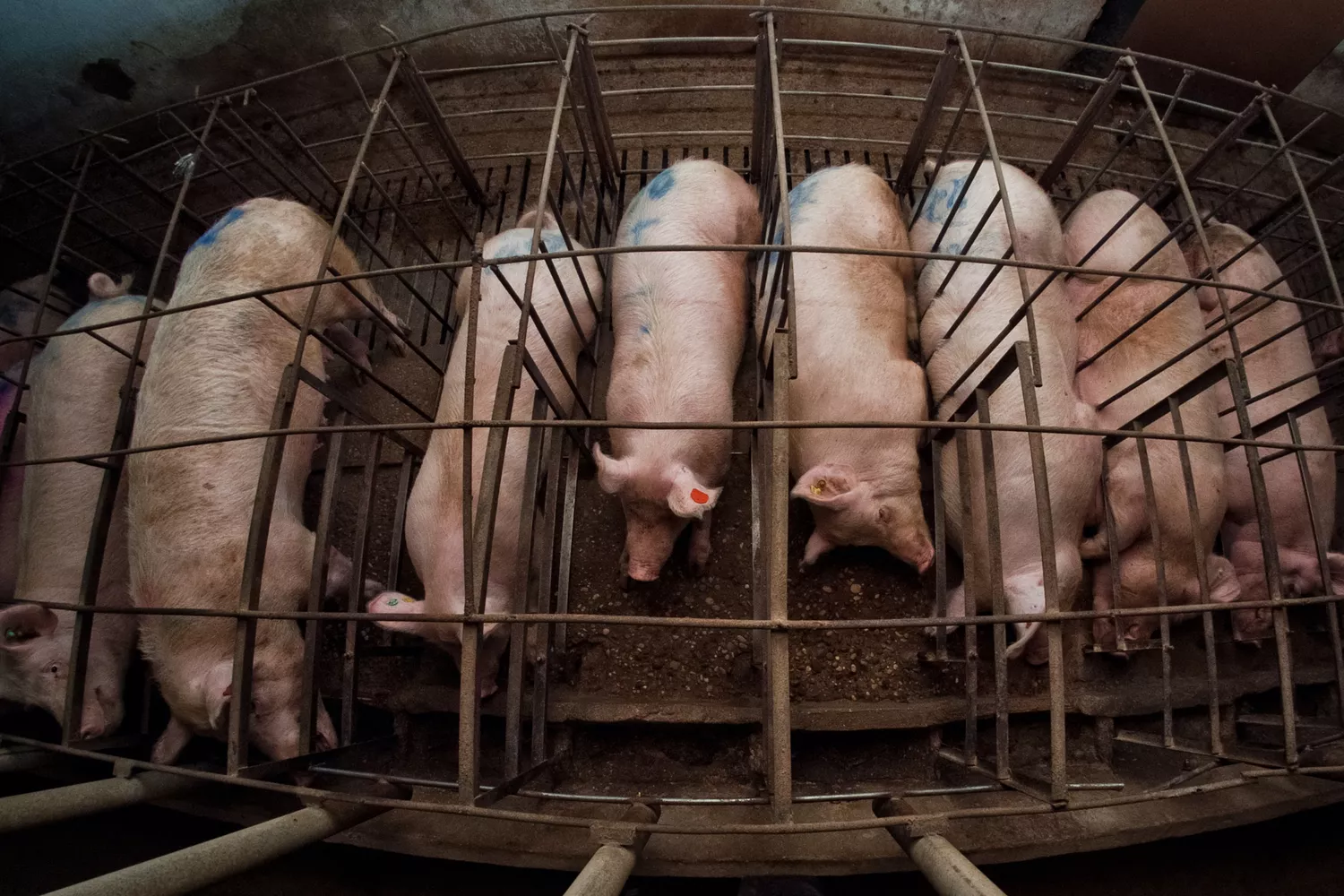
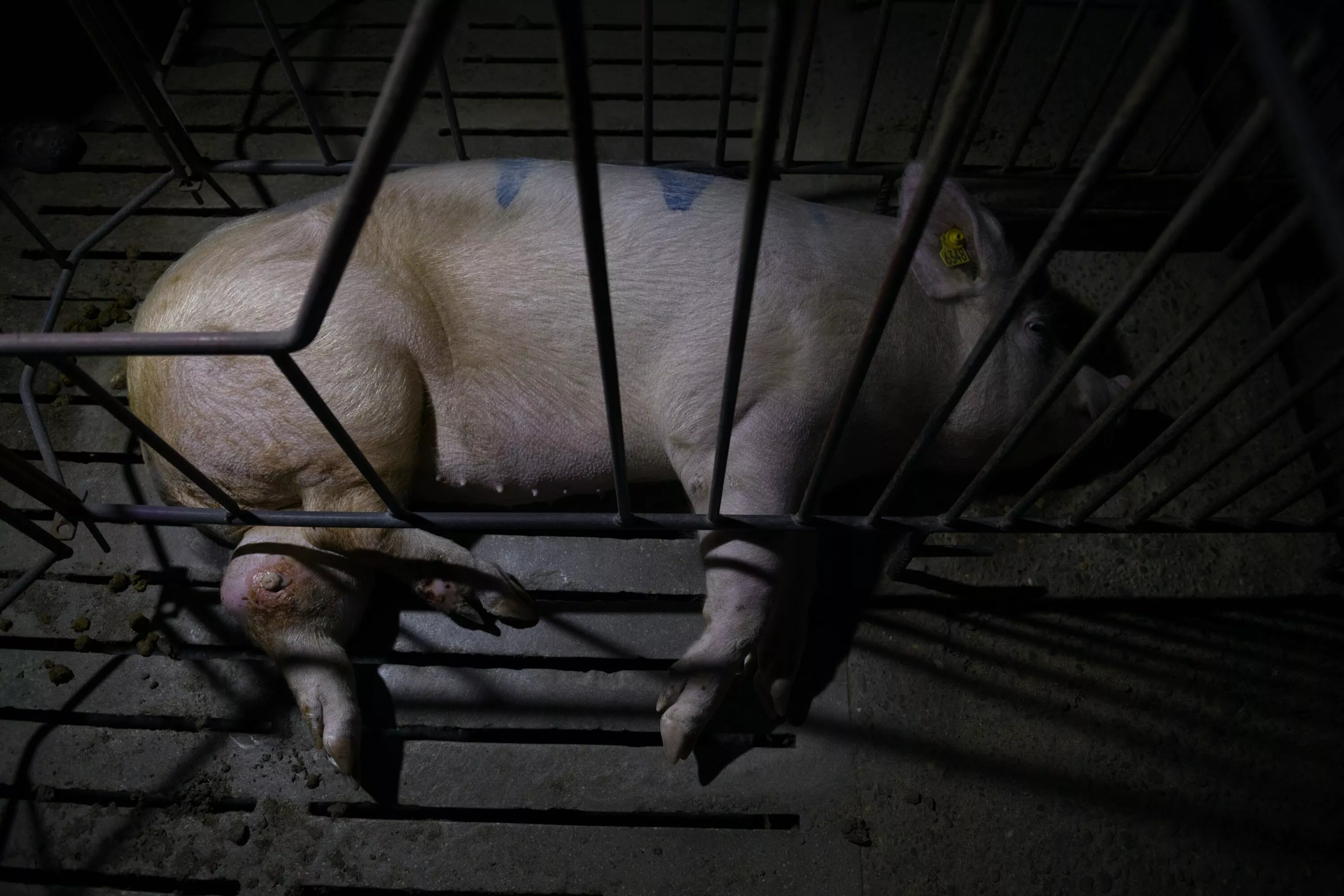
Injury is common
Gestation crates sit atop hard, slatted flooring, which causes foot lesions in as many as 80% of crated sows. The crate itself can also rub against the pig’s skin, causing lesions and sores. These injuries worsen as her pregnant body grows. The concrete floor causes sustained pressure on her limbs, leading to bursitis, the painful inflammation of fluid-filled sacs that provide cushion near joints.
Pigs in gestation crates also suffer from a higher rate of urinary tract infections than uncrated pigs.
In natural settings, pigs choose to defecate away from their resting areas. In gestation crates, however, they must urinate and defecate in their living spaces.
Undeniable stress
Crated pigs also experience higher stress levels, as shown by ACTH, A, and COR in their blood. This leads to more frequent stereotypic behaviors or repetitive behaviors that include “sham-chewing” (chewing at the air) and biting the gestation crate’s bars. Restricted movement and food intake also increases these stress behaviors. Research has also shown that pigs experience less stress in group-housed environments.
The chronic stress of confinement can also extend to piglets’ health. The stress of confinement can cause compromised immune responses in piglets born to crated mothers.
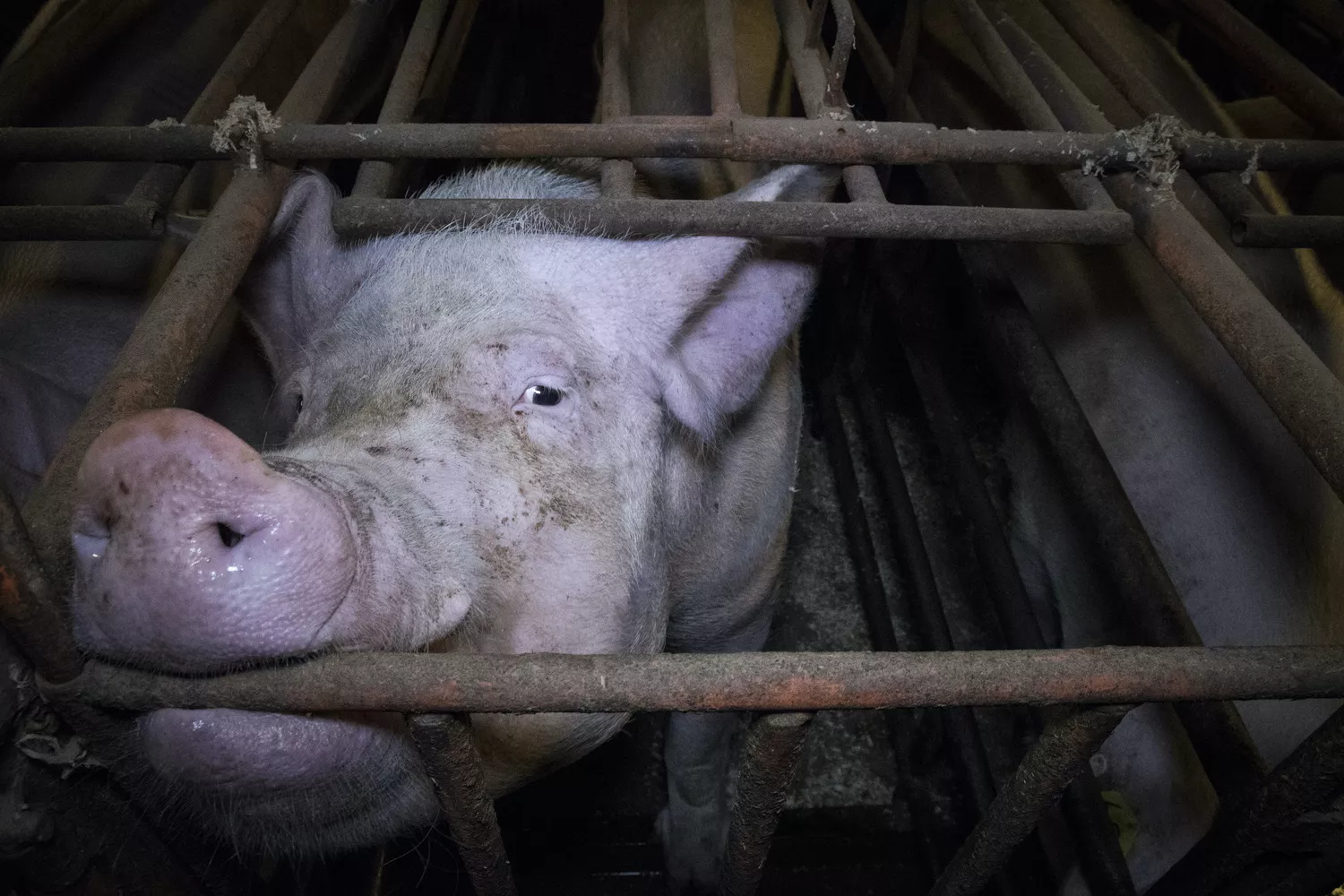
This information is based on public information. We cannot guarantee the accuracy of these statements or whether these are up-to-date policy statements. All images on this website are representative of farms that use gestation crates and do not necessarily come from farms that supply First Watch.

Protect animals with every meal
Discover Love Veg
By eating delicious plant-based foods, you help spare animals from suffering on factory farms. In fact, by eating plant-based, you can save up to 300 animals every year!

